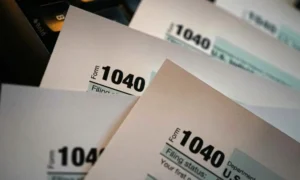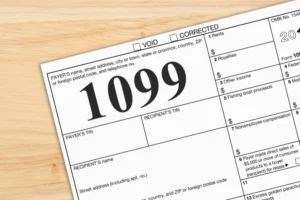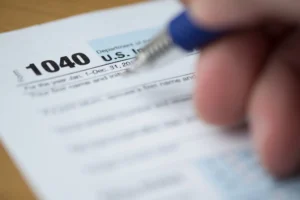The IRS gives Americans anxiety and causes mass confusion. To the point where WebMD has issued a guide on how to cope with tax-time stress.
If you’re a business owner, the fact that tax season is stressful is probably not a newsflash. Personal taxes are already more than enough to deal with for most of us.
However, if you’re in a partnership, or run an S Corp, in addition to your personal tax you’ll also need to see that your business files its tax on time as well.
Which brings us to:
The 1065 Late Filing Penalty And The 1022S Late Penalty
The first thing you need to know is that these penalties can be steep. What’s more, even though you might think your returns are submitted, the penalties can still come into play if your business return slips through the cracks.
To avoid getting an unexpected tax bill from Uncle Sam, it’s important to first check that your business’s return has, in fact, been filed. As well as how to ensure that returns are always submitted on time.
IRS Forms 1065 And 1120S Defined
Before we get into the 1120 filing penalty and the Form 1065 filing penalty, let’s briefly take a look at what these two forms are.
IRS Form 1065
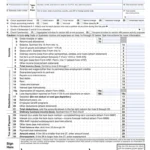 IRS Form 1065 is used for reporting and filing the income and losses incurred with a partnership. Because partnerships are pass-through entities, this return does not usually incur any tax. Instead, taxes incurred are passed through to the partners. Partners must then take the IRS Form 1065 and report their share of the income reported on it by filing a Schedule K-1.
IRS Form 1065 is used for reporting and filing the income and losses incurred with a partnership. Because partnerships are pass-through entities, this return does not usually incur any tax. Instead, taxes incurred are passed through to the partners. Partners must then take the IRS Form 1065 and report their share of the income reported on it by filing a Schedule K-1.
IRS Form 1120s
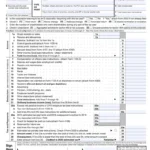 The same principles as Form 1065 apply for 1120S forms. IRS Form 1120S is for the reporting and filing of income and losses incurred by an S corporation. As S corps are also pass-through entities, their total profits are not taxed by the IRS through Form 1120S. Instead, the income reported is passed through to the shareholders who then report it by filing a Schedule K-1. Even though the income stated on 1065 and 1120S forms is not directly taxed by the IRS, it is very important that these forms are filed on time, otherwise, the late filing penalties will be incurred.
The same principles as Form 1065 apply for 1120S forms. IRS Form 1120S is for the reporting and filing of income and losses incurred by an S corporation. As S corps are also pass-through entities, their total profits are not taxed by the IRS through Form 1120S. Instead, the income reported is passed through to the shareholders who then report it by filing a Schedule K-1. Even though the income stated on 1065 and 1120S forms is not directly taxed by the IRS, it is very important that these forms are filed on time, otherwise, the late filing penalties will be incurred.
How Do Late Penalties on 1065 and 1220S IRS Forms Happen?
 Now that we are clear on the purpose of the 1065 and 1220S IRS forms, let’s take a look at how late penalties can happen.
Now that we are clear on the purpose of the 1065 and 1220S IRS forms, let’s take a look at how late penalties can happen.
There is also another way in which you might incur penalties. This occurs if you are under the impression that the business’s return has been filed, when in fact it has not.
1. Knowingly Filing Late
Now that we are clear on the purpose of the 1065 and 1220S IRS forms, let’s take a look at how late penalties can happen.
The first instance is pretty simple. For whatever reason, you knowingly file your business’s 1065 or 1220S form late. This can happen due to an oversight, missing documents, staffing issues, etc. In this case, the best course of action is to always apply for an extension so as to avoid late penalties.

Need Help Filing an Extension?
We’ve Got You Covered.
2. Unknowingly Filing Late
There is also another way in which you might incur penalties. This occurs if you are under the impression that the business’s return has been filed, when in fact it has not.
Most businesses have a preparer who will fill out, prepare, and file the company’s tax return forms. This can be somebody inhouse, or an external tax professional.
In some cases, the preparer might omit to file the return. Sometimes they are aware of their oversight. In other circumstances, they might not realize that the return wasn’t successfully filed.
Either way, if the return is late, penalties with be incurred, and the onus falls on the business to pay them, not the preparer.
How Much Is the 1220S and the 1065 Late Filing Penalty?
 So, speaking of the penalty, how much exactly is it?
So, speaking of the penalty, how much exactly is it?
At present, the Form 1120S late filing penalty and the Form 1065 late filing penalty stands at $195 per month. A full month or part of a month counts. The penalty has a maximum period of 12 months.
This penalty can be leveled at each partner or shareholder, depending on whether the business is a partnership or S corp.
In most cases, there won’t be any tax owed on a 1220S return or a 1065 return, as the tax liability is passed through to their shareholders or partners.
However, in the rare event that there are taxes owing on the return, the penalty will increase by 5% of the unpaid tax for each month, or part of a month, that the return is late. This has a cap of 25% of your tax bill, or 5 months of penalties.
If you do not pay this, the IRS will also charge you interest on the outstanding penalty amount.
Who’s Liable for Late Filing Penalties?
 There are a couple of key differences as to who is liable for late filing penalties when it comes to partnerships and S corps.
There are a couple of key differences as to who is liable for late filing penalties when it comes to partnerships and S corps.
In a partnership, 1065 late filing penalties are assessed against the partnership. However, the partners are held individually liable for the penalty.
The way this plays out depends on the level of liability that each partner holds. For instance, if one partner is a general partner and assumes 100% liability for business debts, then he or she will be 100% liable for the penalty.
For S corps, 1120 late filing penalties are also assessed against the company. However, they are not held against any individual shareholder, and shareholders aren’t directly liable for the penalty.
How to Avoid Late Penalties
 As you can see, late filing penalties for partnership and S corporation returns are no walk in the park. Or at least, a very expensive walk in the park.
As you can see, late filing penalties for partnership and S corporation returns are no walk in the park. Or at least, a very expensive walk in the park.
So without any further ado, let’s get into how to avoid them (in no particular order):
1. Check for Any Unaccepted Returns or Extensions
The very first thing to when guarding yourself and your company from late filing penalties is to check for any current unfiled returns or unaccepted returns or extensions.
To do this you can phone the IRS to enquire. Have your company details ready and explain to them what you want to check.
You can also check up on the status of your business returns on Free File. Or, alternatively, you could get an independent tax professional to make inquiries on your behalf.
If you find that there are any unfiled returns, then the first order of business is to get these filed as quickly as possible, as well as to find out why they weren’t filed.
2. File for an Extension
If you’re running out of time to file your 1065 return or 1120S return on time, then, instead of calling a therapist and asking for a prescription—you can simply apply for an automatic extension.
Automatic extensions are just that, automatic. This means that once the extension has been processed, you are automatically granted an additional window of time in which to file your business return.
To do this you will need to fill out and submit Form 7040, The IRS’s Application for Automatic Extension of Time To File Certain Business Income Tax, Information, and Other Returns.
The name of this application might be a mouthful but the process is super simple, and at the end of it you will gain a grace period of six months in which to sort out your partnership or S corp return.
3. Verify With Your Preparer That Returns Have Been Submitted
As the liability for late penalties will always fall on the business (and in the case of partnerships, the partners themselves), always check with your tax preparer to ensure that returns have in fact been filed.
You may also want to ask for electronic proof of this. Do not feel bad to request this, as it is your legal responsibility to ensure your business is tax compliant in all ways.
4. Know Your Tax Deadlines
There’s no better recipe for filing late than being unsure of your business’s tax deadline.
Each year has slightly different filing dates, depending on how the weekends and public holidays fall. This means that the 2020 tax deadlines for partnerships and S corps are a little different than they were last year. Let’s break them down:
- Filing due date for partnerships: March 16, 2020
- Filing due date for S corporations: April 15, 2020
If you can already see that you are not going to make these dates, then you will need to file for an extension. To avoid the penalties, you must file for the automatic extension before the filing due date including all relevant information and paperwork.
Also, be aware that any taxes due are not postponed. Any estimated taxes must be paid in full before the due date, as the IRS specifically says that “Form 7004 does not extend the time for payment of tax.” It merely extends the time due for filing so that you have enough time to accurately fill out and file your tax forms.
5. Get Professional Tax Help
If you are having trouble with your taxes, it is usually a good idea to bring in some expertise.
We know how complicated business taxes can get, and for that reason, it is often best to have someone qualified in your corner so that you can meet your filing deadlines and be sure that you are 100% compliant.
If the thought of this is like a weight lifting off your shoulders, then it is high time you allowed yourself to have a little heavyweight help. If you’re looking for a tax professional to turn to, check out our flat-fee tax consulting services.
How to Appeal Penalties for Late Filing
 If you have already incurred 1120 late filing penalties or a partnership late filing penalty, you have two choices. You can either pay over the penalties, or you can appeal them.
If you have already incurred 1120 late filing penalties or a partnership late filing penalty, you have two choices. You can either pay over the penalties, or you can appeal them.
It is generally advisable that a tax professional help you with contesting any late filing penalties.
There are a few different grounds on which you can appeal for relief from late filing penalties. These are:
- Penalty abatement due to reasonable cause
- Penalty abatement on the grounds to first-time penalty abatement or a clean compliance history
- “Safe harbor” penalty relief for small partnerships (you must have 10 or fewer partners and meet specific IRS qualifications)
Let’s take a look at the first set of grounds on which you can appeal for penalty rebatements—reasonable care.
1. Reasonable Care
This appeal might be worthwhile pursuing if you used all ordinary business care to ensure that your business’ s return was filed.
If the reason for the late filing was something out of your control, the IRS might consider awarding you an abatement of the penalty.
Things outside of your control include circumstances like:
- Fire, other natural disasters or other disturbances
- Serious illness, death, incapacitation, or unavoidable absence of the taxpayer
- Inability to procure records
2. Reasons Beyond Control
If you have any other reason which shows beyond doubt that you were unable to file the return or procure the right documents, this might also be considered valid by the IRS. For example, if you were detained in a foreign country, suffered from memory loss, or were held hostage, you will probably have reasonable grounds for a penalty abatement with the IRS due to reasonable cause!
Besides these extreme things, the IRS will also take into account factors like:
- The possibility that an honest mistake has been made
- Incorrect advice
- Ignorance of the law
- Undue hardship
- Advice from the IRS
- Advice from a tax advisor
- If you were in an official disaster area
If this is the first time you have incurred a penalty the IRS will give this consideration, as well as if you have a clean compliance history. As mentioned above, if yours is a small partnership with less than 10 partners, and you meet certain IRS qualifications, you may also be eligible for an annulment of the penalty.
Let Us Take Care of The IRS Forms & Deadlines For You
 If you’re facing a 1065 late filing penalty or a 1120 late filing penalty, there are a few things to do ASAP. These are, to rectify the late return, possibly appeal for abatement of any penalties that you have incurred, or pay these to the IRS.
If you’re facing a 1065 late filing penalty or a 1120 late filing penalty, there are a few things to do ASAP. These are, to rectify the late return, possibly appeal for abatement of any penalties that you have incurred, or pay these to the IRS.
If the mere thought of handling these issues is stressing you out, then you deserve to get a tax head in who can sort it all out for you with minimum hassle.
If you are on the fence about whether or not to get help—the fact that you are faced with a failure to file or late filing penalty is a strong indication that your business needs a tax pro on its team.
This is why we recommend that you come and speak to us, the ultimate tax heads. We specialize in assistance for unfiled tax returns, as well as tax emergencies. Contact us today to learn more about what we offer, and how we take the stress out of business taxes.



